A response to CityNews - Pushing narratives and perpetuating stereotypes
Written by Zach "crackshot" McGinnis.
The World Health Organization has recently classified gaming addiction as a disorder, and it is a very good thing for the esports and gaming industry to see this issue come into the light. What’s unfortunate is that a recent video by CityNews’ Nitish Bissonauth on the topic filmed at EGLX involving both pro and collegiate players entitled “Possible dangers of video game addiction” has sparked heated conversation in the esports community about the way it perpetuates negative stereotypes in gaming and esports. Several participants and personalities were interviewed at EGLX, and unfortunately had their words sliced and diced for the purpose of pushing this narrative to viewers.
Tournaments hosted in major titles like Counter-Strike: Global Offensive would see a LAN lineup of featuring Josh "steel" Nissan, Keven "AZK" Lariviere, Dallas "Dallas" Micks, Evan "emode" Patrao and Skyler "Relyks" Weaver being crowned champions. Many collegiate teams fielded rosters in CS and other titles such as the Ryerson Rams and the St. Clair Saints.
Alongside these high profile players and teams, several personalities and professional figures in the industry were present to celebrate advancements, developments, and the culture that gamers have built over the years. Of course, this event drew quite a bit of media attention; however, it was unfortunately not all positive. Bissonauth interviewed several gamers and personalities to seemingly gain some insight into the world of gaming and gaming culture, and players and professionals obliged in good faith.
The interviews, according to several sources, asked a lot of questions, some pertaining to World Health Organization’s recent official classification of gaming addiction as a disorder. Many interviewees thought nothing of the questions as CityNews did not claim that this was the purpose of the interview initially. Ryerson’s Rocket League star Liam “Cat” Parmar chimed in about his thoughts on how his words were spun to help the reporter push a particular narrative
They came up to me when I was playing Rocket League and asked me five or so questions about video games and the World Health Organization classifying the addiction to them as a mental illness, I gave a nuanced reply and talked about how this discussion has been had many times and how every time, it's misconstrued as some evil thing akin to alcoholism or drug addiction when in reality it's more like binge-ing Netflix or watching movies all the time. They only used the clip of me saying how long I played for each day so they could spin their narrative the way they wanted.
The publication of the video sparked outrage in the community, and rightly so given the reputation that many of the interviewees hold in the industry. Liquid’s Juan “HungryBox” Debiedma, former number one and currently ranked 2nd overall globally in Super Smash Bros. Melee, make his thoughts clear in this tweet:
HungryBox was not the only person of quite serious stature that felt this way, as Jirard “The Completionist” Khalil has his fair share of thoughts on how his interview was sliced and diced to fit the story:
Ben Jackson, Esports Consultant for Swarmio (CS:GO Tournament Organizer at EGLX), was also put off by the video’s content and message and had this to say regarding the publication:
I don't believe that enjoying a hobby is parallel with addiction. The amount of people that take it to the extreme of dropping out of school or missing work to play is so small that painting the broader community with this brush is absurd. When I came home from school I would go to my room to play games and my mother would come to tell me to stop around 10pm after just sitting there watching television for 5 hours as if my online communities, strategy building, communication development was somehow worse then her staring at a screen for the same amount of time.
I have been able to build a business for myself, become an entrepreneur, be a better problem solver, become a great networker, all because of my online hobby as a teenager. There is no job in being a professional television watcher, but you can make a career of playing games for a living… if someone thinks that video game addiction is anything similar to cell phone addiction, they are kidding themselves
Popular Counter-Strike commentator and streamer, Roy “Strong Legs” Ahad, had a similar message as Jackson in regards to the stigma of gaming and how it’s seen differently than other popular entertainment sources:
We're probably as glued to our screens as you are to your sofa eating Cheetohs and watching Netflix at night
Countless comments rang through in the original tweet’s thread, that can be viewed here. Ryerson took to twitter to discuss frustrations about the video.
Ryerson University’s Esports Management did not hold back when asked for comment on what they thought of the article, with Joseph “Sharkkangaroo” Raimondo, President of Ryerson Esports saying:
Our players are very proud of the fact that they are able to balance their school work while also being in top form for collegiate competition. This is no easy task and takes a lot of dedication to the game and the team. The fact that one of our players was interviewed and then quoted without knowing the true purpose of the interview makes us extremely sad. There were so many amazing stories to tell at EGLX and they decided to go with video game addiction.
Sebastien “w u s o” Martin-Schultz, Vice President of Ryerson Esports added:
I guess why I was so offended was that we put a lot of work into what we do at Ryerson. I was working EGLX that weekend and I was so proud to see so many players from Ryerson there as it was the first time so many of us were at the same event. Then, to see CityNews go out and actively misrepresent not just us, but many members within the esports community in Toronto... it really hit a nerve. Especially when there was so many opportunities to have cool and interesting stories.
The World Health Organization officially defines video game addiction as, “a pattern of persistent or recurrent gaming behaviour, defined by three criteria: the lack of control of playing video games, priority given to video games over other interests, and inability to stop playing video games even after being affected by negative consequences.”
While it is certainly true that there are numerous people in the gaming world that suffer from this evident affliction, one cannot go to an event that celebrates gaming and esports and expect to find people that would fit the bill here. Most of the players, if not all of them, have to balance work, school, gaming, health, and other activities in their lives in order to be successful. It is not fair or accurate to assume that competitors, exhibitors, or personalities at an event of this magnitude fit any of the aforementioned criteria.
Unfortunately, the stigma surrounding gaming in the mainstream still exists despite the leaps and strides esports and gaming culture have taken over the last decade. While the video ends off chiming in about the future of VR gaming, it really doesn’t do much to change the message. Gaming addiction is a serious issue, and the recent classification of it as a disorder helps bring it into the light to properly tackle it; however, using a random sampling of competitive gamers at a gaming-oriented event is not a good reflection of the affected population.
Editor’s Note: Bissonauth could not be reached for comment as of the time of publication. The opinions expressed in this article are solely those of the author and participants.
Also read

















